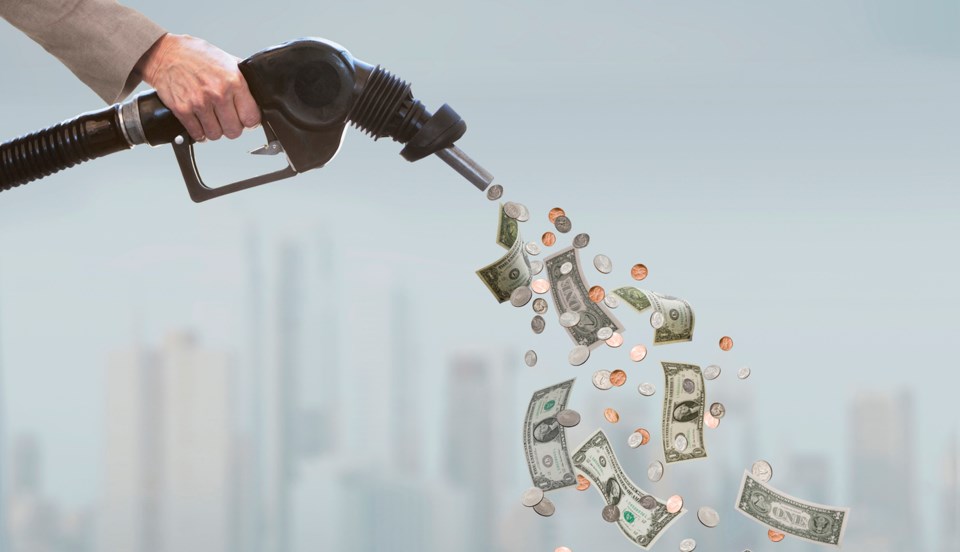With fuel prices soaring in Prince George, as well as across B.C. and Canada, the environmentalists are clucking extra loud about electric vehicles and fossil fuels.
Let’s put aside all of the fossil fuels needed to make the plastic in those vehicles and all of the mining required to extract the metals needed to build and operate the charging infrastructure and focus on the harsher reality. Rising gas prices actually hit people who can’t afford to drive the hardest.
As consumers know all too well and environmentalists and left-of-centre politicians would rather ignore, the high price of gas drives up the cost of everything else. When the working poor, people on social assistance and seniors living on fixed pensions and Old Age Security head into the grocery store, they find much higher food prices. Same goes for clothes for themselves and their kids, as well as other essential consumer goods.
Those goods are not teleported into stores or delivered by beautifully silent cars. They arrive by heavy-duty, emission-belching trucks and those trucks need the same fuel to operate as everyone else. Since the trucking companies and the stores are for-profit businesses, they pass on those extra fuel costs onto their customers.
It doesn’t matter whether it’s the war in Ukraine or greedy energy companies, real people are being hurt. The provincial and federal government should help but not with relief at the pumps. Their assistance should be for people and families with less than average income struggling to put food on the table, not every day middle class and upper-class drivers put out by the rising costs of their commutes.
And if you’re one of those middle-class and upper-class folks (the average family annual income in Prince George is $85,000, so rank yourself accordingly), your mutual funds and workplace pension funds are already quietly benefiting from the higher gas prices, as the stock value and quarterly profits of fuel providers in your portfolio rise accordingly.
In other words, you might actually be coming out ahead in the long term with high gas prices, even if you’re feeling it at the moment at the pumps and in the stores. And crying the blues about gas prices while driving a full-size gas or diesel truck that hauls nothing except your butt most of the time sounds like your personal, First-World problem.
People without those trucks and those investments in energy companies are being hit hard by rising gas prices. Those are the losers in this equation and they’re the ones who need government help.


